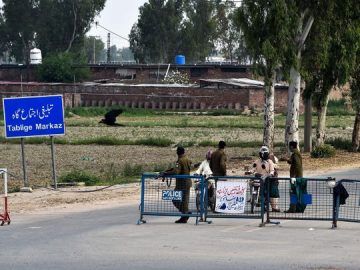Feisal H. Naqvi in The News:
 How is the state supposed to deal with the economic consequences of a lockdown? What happens if supply chains break down? How are daily wagers supposed to feed themselves in the absence of economic activity? What happens if social order breaks down?
How is the state supposed to deal with the economic consequences of a lockdown? What happens if supply chains break down? How are daily wagers supposed to feed themselves in the absence of economic activity? What happens if social order breaks down?
One very original answer based on “smart lockdowns” has been proposed by my friend, Rashid Langrial. His work builds on the insight that when faced with two terrifying choices, the best option is to try and “de-risk” the situation so that one is not faced with only binary options.
Smart lockdowns are based on graduated restrictions ranging from a complete curfew to relative freedom. More importantly, the restrictions would not be applied nationally, provincially or even across one particular city but only to those specific zones where infection is prevalent.
By Langrial’s estimate, a smart lockdown approach would allow 90 percent of the country to stay relatively open. The economy would not be unfettered. But it would survive.
But how does one implement smart lockdowns?
To begin with, Pakistan’s population of 210 million would be organised into economically independent zones using three principles. First, the boundaries would be clearly demarcated and easily communicable. Second, the boundaries would be demarcated to maintain the existing social fabric of the area. Third, the zones would be economically integrated so that at least 80 percent of a zone’s economic activity would be internal to that zone.
More here.
